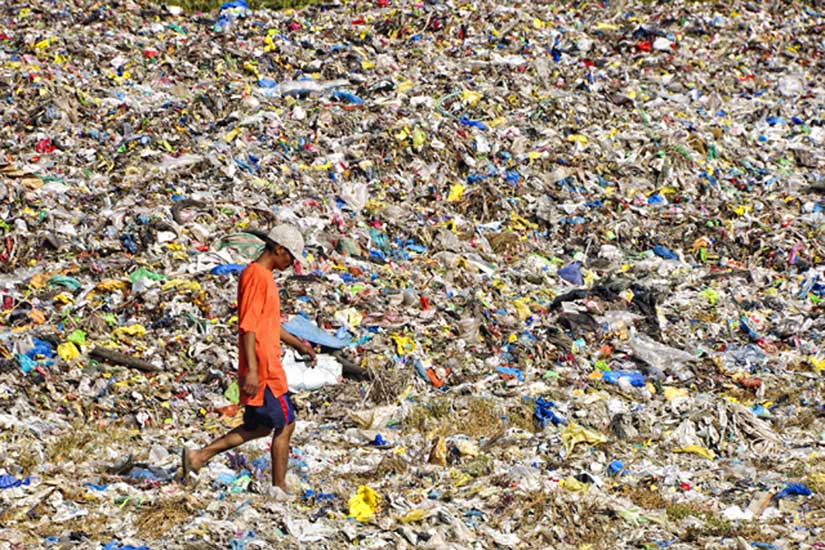
Environmental group World Wide Fund for Nature (WWF) Philippines shared on Wednesday a plan requiring policymakers and stakeholders to hold plastic producers accountable for the plastics they put out in the market.
Titled the Extended Producer Responsibility (EPR) Scheme Assessment for Plastic Packaging Waste in the Philippines, the WWF report proposed a three-year roadmap to set up an industry-led, non-profit Producer Responsibility Organization (PRO) which will operate a recycling system monitored and controlled by the government.
“EPR schemes incentivize and require the redesign of packaging of products and overall reduction of waste to remove unnecessary plastics from the supply chain,” said Francesca “Ina” C. Guingona, policy officer of WWF’s No Plastics in Nature initiative, at the report’s virtual launch.
WWF recommended doing away with excess packaging and using recyclables instead of virgin materials.
The updated roadmap incorporates the country’s existing solid waste management infrastructure. This includes Materials Recovery Facilities (MRF), junk shops, recycling facilities, the informal waste sector, and initiatives from civil society organizations.
“Obliged businesses pay EPR fees to the PRO, which then contracts and pays waste management operators, who then dispose products from consumers that are bought from the businesses,” said Ms. Guingona.
“MRFs, through partnerships with social enterprises and cooperatives, support the informal sector,” she added.
In 2020, an annual report from the DENR Environmental Management Bureau (EMB) projected waste generation in the country to hit 23.6 million tons in 2025, from 21.4 million tons in 2020.
The first EPR study WWF released in 2020 also found that 35% of the plastic items consumed by Filipinos leak into the open environment while 33% are disposed of in sanitary landfills and open dumpsites, with only 9% recycled.
LEGISLATION AND MINDSET
A lack of MRFs exacerbates the problem, according to Maria Antonia N. Tanchuling, founding partner of engineering consulting firm AMH Philippines, Inc.
She added that the pandemic has worsened the situation in the last two years: “Aside from healthcare waste like the masks and shields which were mismanaged, we have increased online purchases, the food deliveries which rely a lot on plastic packaging.”
The WWF report highlighted the Philippines’ lack of capacity to recycle both high-value plastics like polyethylene terephthalate (PET), polypropylene (PP), and high-density polyethylene (HDPE), and low-value plastics, such as sachets.
Czarina Constantino-Panopio, WWF’s national lead for the No Plastics in Nature initiative, said that the EPR scheme hinges on the full force of legislators as well as the public who must take on a greener mindset.
“The public is really important in terms of pushing legislators to pass the bill and also pushing businesses,” she said, “because they are already doing something and we want to continue these milestones that we’re getting.”
In the past few years, EPR has gained traction in the Philippines, with the House of Representatives recently passing House Bill 9147, known as the Single-Use Plastic Products Regulation Act, which contains an introductory provision for EPR.
Meanwhile, Senate Bill 2425 or the EPR Act is now on its second reading. Senator Cynthia A. Villar, the bill’s sponsor, said at the launch: “I have faith that this important bill is comprehensive enough to address plastic and solid waste management in the country.”
The Philippines’ effort to control its plastic problem will contribute to WWF’s global initiative to stop plastics from entering nature by 2030. — Brontë H. Lacsamana



